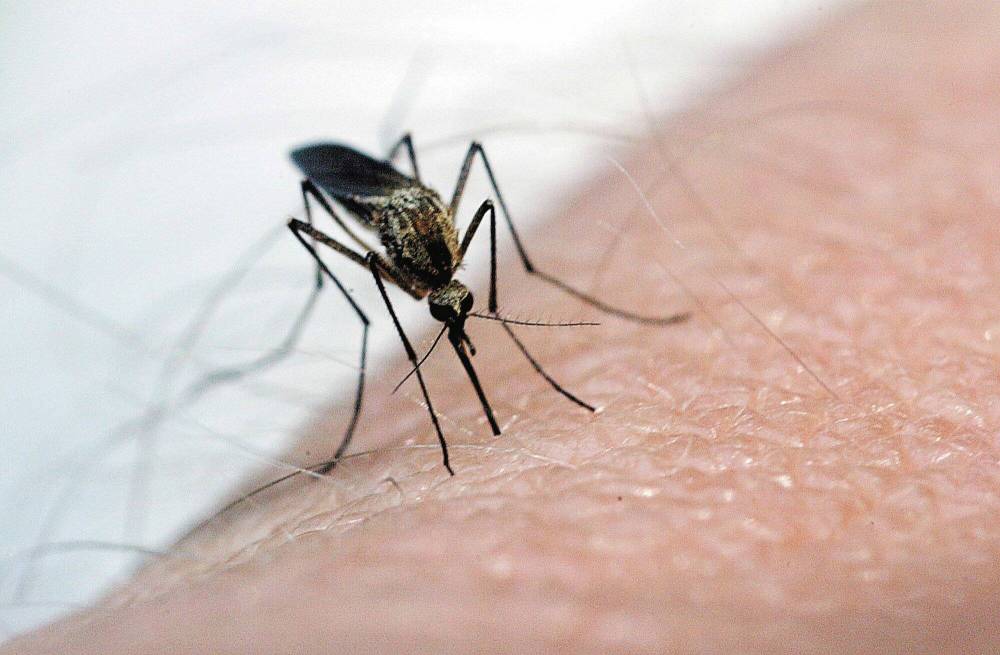
A University of Manitoba researcher is setting sights on neutering buzzing bloodsuckers this summer.
Steve Whyard, a professor in the biological sciences department at U of M, is testing out new technology to control disease-carrying mosquito populations without harming other insects and the surrounding environment.
The team is performing tests on two varieties of mosquitoes from tropical regions: one that carries dengue fever and another that carries Zika virus.
(File) A University of Manitoba researcher is testing new technology to control disease-carrying mosquito populations without harming other insects and the surrounding environment.
Whyard hopes to eventually use the research to reduce the number of West Nile virus-carrying mosquitoes in Manitoba.
More than 300 million cases of dengue fever happen every year globally, statistics from the World Health Organization show.
The sterilization technology uses a RNA genetic cocktail fed to a captured male mosquito that shuts off certain genes in its sperm to prevent it from fertilizing a female mosquito. Whyard said the same science can be used to prevent female mosquitoes from fully developing, too.
When the male mosquitoes are fully sterilized in the lab, they are then released to compete with wild males for females, with the goal to prevent larvae from being laid.
The same genetic cocktail could be fed to mosquito larvae to kill them. The genetic mixture can also be tailored for specific species, without causing harm to the other bugs in the area.
“It just kills the pest, but does not hurt anything else in the ecosystem,” said Whyard.
Whyard said while this technology won’t lead to extinction, it can have a strong impact on population in certain areas where the sterilized mosquitoes are released and could eliminate mosquito-borne diseases completely.
He said the technology could theoretically also be used to take a bite out of the disease-free mosquito numbers in the city.
“Going out in public and getting bitten at night is not pleasant. So we could control that species and really reduce the mosquito population in a city,” said Whyard.
Sterilizing insects isn’t a new a idea, with the method being around for more than 100 years, Whyard said. It was previously done with radiation, which isn’t as effective at reducing populations in the long term, he said.
“Radiation can knock the stuffing out of the males (mosquitoes). It can lead them to be weak and not competitive,” said Whyard.
He said the sterilized mosquitoes need to be strong enough to compete with the wild ones for them to successfully mate with the females and have the method succeed.
David Wade, superintendent for the city’s insect control branch, said he’s seeing more adult mosquitoes than last year. As of July 1, the average mosquito trap count in Winnipeg was 24.
“With all the rain we’re getting, it’s keeping our crews very busy,” Wade said earlier this week, noting mosquitoes are most active during the dusk and dawn hours.
The city’s main methods for staying on top of mosquito numbers are fogging by helicopter, all-terrain vehicle, and drones, and spraying open water with larvicide.
Wade said Winnipeggers can help control mosquito numbers by clearing standing water off their properties, covering rain barrels, and making sure eavestroughs aren’t clogged.


